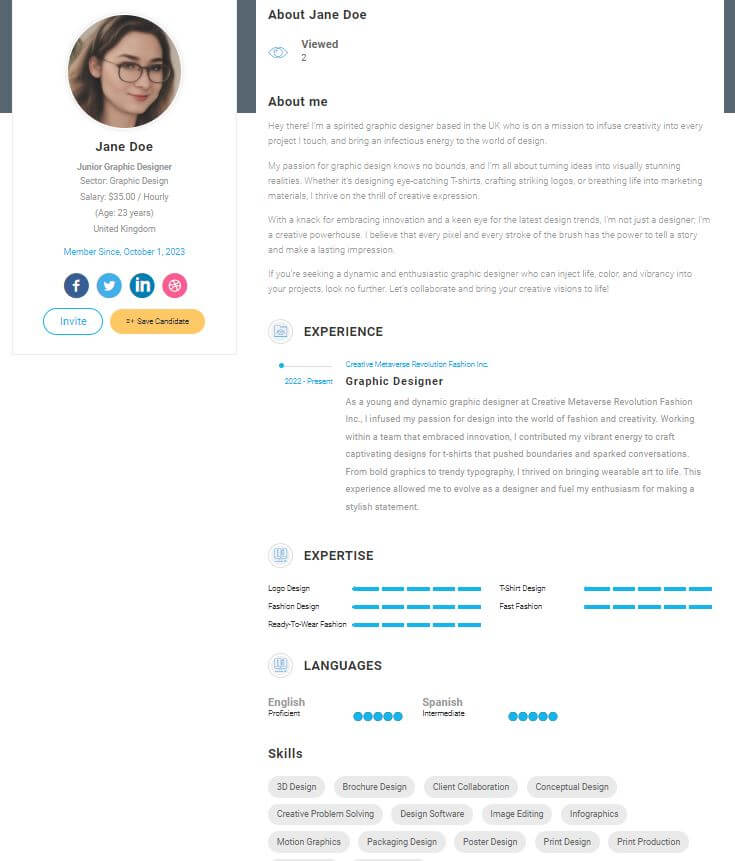Starting a career as a travel writer can be very attractive. I mean you can travel and making money while doing it. It is probably a dream job for most people.
A travel writer get paid an average of $53K to $56K, this is way above the average hourly pay range of most remote jobs.
Getting into this career begins with a commitment to education, honing relevant skills that includes photography, and video editing.
Key Takeaways
- Skill development is key to becoming a travel writer.
- Travel writing can be fun and stressful as well.
- Understanding the local culture, and ability to give a unique insight can help in your career growth.
What Does a Travel Writer Do?
Travel writing is a lifestyle choice that combines the love of travel with the craft of writing. As a freelance travel writer, you immerse yourself in new cultures and experiences. Then, you articulate these adventures through engaging stories and informative guides.
- Writing: At the heart of travel writing is the ability to convey your experiences and insights in a way that captivates your readers. You should possess strong writing skills, with particular attention to grammar and style.
- Freelance: You work independently, often as a digital nomad. This means you have the freedom to choose your projects and clients. You also need the confidence and discipline to manage your own schedule and meet deadlines.
- Passion and Lifestyle: Passion for both travel and writing is essential in this field. Travel writing isn’t just a job; it’s a way of life that requires adaptability and a genuine desire to explore the world.
| Task | Description |
|---|---|
| Describing Destinations | Share vivid details of the places you visit. |
| Travel Tips and Preparation | Offer practical advice for various types of trips. |
| Recommendations and Critiques | Provide honest insights into accommodations and attractions. |
| Highlighting Cultural Aspects | Draw focus to local events and traditions. |
| Seasonal Information | Inform readers of weather conditions and seasonal happenings. |
| Personal Travel Experiences | Relate your own travel stories to educate and inspire. |
Remember, the way you present your work will vary depending on the publication or platform. Your narratives may require multimedia elements like photos or videos if you are creating content for your own channels.
What Does Being a Travel Writer Feel Like?

Imagine embarking on global adventures, where every destination offers a new story. As a travel writer, you immerse in cultures, awe-inspiring landscapes, and the pulse of city life. Your experiences are more than personal—they are tales waiting to be told.
The life of a travel writer is varied and exciting, yet it’s not all lavish tourism. It requires a blend of passion, perseverance, and planning.
Being on the go means:
| Pros | Cons |
|---|---|
| Cultural immersion | Irregular income |
| Unique experiences | Balancing multiple tasks |
| Creative storytelling | Tight deadlines |
| Seeing the world | Managing time effectively |
The reality includes crafting pitches, networking, and waiting on responses from editors. On the road, you’re gathering stories, not just souvenirs.
Your travels may not resemble a luxurious escape. Often, they’re packed with interviews, note-taking, and staying constantly engaged. But, as you navigate this journey, you’ll find that the true reward lies in the richness of experiences, not just financial gain.
Embrace your writing adventures knowing they are much more than just trips. They are your canvas, painting the world through your words, for all to see and feel.
Understanding What is Travel Writing

Travel writing is the art of conveying the experience of visiting different places through written words, often enhanced with visuals like photos and videos. It’s about sharing the essence of a journey, the culture, the landscapes, and the people you encounter.
Developing Core Skills
To excel in travel writing, you must hone specific skills that allow you to capture and articulate your travels compellingly.
- Writing: Your ability to craft engaging narratives is paramount. Utilize a mix of vivid description and storytelling to bring your readers along on the journey.
- Photography: Capturing striking photos can complement your writing and give readers a visual understanding of the destination.
- Videography: Including video content can offer a dynamic perspective on your travel stories, often engaging viewers more deeply than text or pictures alone.
| Skill | Description | Importance |
|---|---|---|
| Writing | Engaging narratives, descriptive language, storytelling skills | Essential |
| Photography | Visual storytelling, composition, light manipulation | Highly valuable |
| Videography | Dynamic storytelling, editing, pacing | Increasingly important |
Knowledge Areas and Expertise
Your expertise in certain knowledge areas can greatly enhance the depth of your travel writing.
- Cultural Insight: Understanding the local customs, history, and social nuances allows you to write with authenticity and respect.
- Destination Knowledge: Being well-informed about your destination—from geography to local attractions—enables you to provide valuable insights.
- Travel Logistics: Knowledge of travel logistics, including transportation and accommodation options, can offer practical advice to your readers.
Your professional and clear approach in travel writing guarantees that your readers will not only gain information but also feel connected to your experiences. As you capture their imagination with your words, photos, and videos, your friendly tone will keep them returning for your next adventure.
How to Become a Freelance Travel Writer?
Embarking on a freelance travel writing career involves combining your passion for exploration with a professional writing approach. It’s about crafting vibrant stories and guides that resonate with fellow travel enthusiasts. Here’s how you can turn your love for travel and writing into a fulfilling freelance lifestyle.
Step 1: Cultivating a Travel Writer’s Mindset
Develop a keen sense of observation and a curiosity about cultures, places, and experiences. As a travel writer, your mindset must be open and adaptable. Embrace the required technology savviness and strive for effective writing, grammatical precision, and a unique storytelling style.
Step 2: Establishing Your Online Presence
Your online presence is your digital footprint in the freelance world. Create a professional website and utilize social media to showcase your work and connect with your audience. A robust online brand helps you stand out and demonstrates your commitment to the craft of travel writing.
Step 3: Creating an Engaging Writing Portfolio
Start with a portfolio that highlights your best work, whether it’s blog posts or detailed travel guides. Keep your portfolio updated and accessible, considering a personal blog to actively demonstrate your evolving writing style and growing expertise in your niche.
Step 4: Pitching and Collaborating with Editors and Publishers
Once you’ve honed your writing skills, it’s time to pitch to editors and publishers. Tailor your pitches to fit each publication’s unique style and audience. Building relationships with industry professionals paves the way for repeat opportunities and a sustainable freelance career.
Step 5: Finding and Securing Writing Opportunities
Diverse writing opportunities await, from hotel reviews to travel itineraries. Seek out job postings on relevant websites and use networks like LinkedIn to connect with potential clients. Persistence and a solid pitch can unlock the door to various travel writing gigs.
| Opportunity Type | Pros | Cons |
|---|---|---|
| Hotel & Restaurant Reviews | Immediate work, Easy entry | Highly competitive, May require travel |
| Travel Itineraries | Creative freedom, Share personal expertise | Time-consuming, Detailed research needed |
| Travel Guides | Establish expertise, Long-term work | Requires thorough knowledge, Niche-focused |
Step 6: Efficiently Managing Projects and Deadlines
As you secure writing assignments, implement a system to manage projects and deadlines efficiently. Use tools like digital calendars and task managers to stay organized. Meet your deadlines to ensure a positive reputation and ongoing work.
Step 7: Marketing Yourself and Building Client Relationships
A consistent marketing effort keeps you visible to clients old and new. Regularly update your blog, engage on social media, and network at industry events. Foster trust with clients through clear communication, reliability, and delivering high-quality work.
Incorporate these steps with a professional and clear approach, and witness your journey from a passionate traveler to a recognized freelance travel writer unfold.
Get your 100% Free online resume and get noticed by potential employers. Start out of the crowded space of millions of remote job seekers and find the remote job that you will enjoy and love.

Join over 11,000+ achievers who are committed to achieving their career goals!







